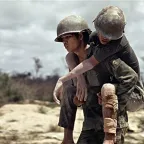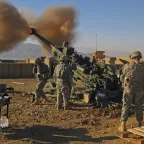ICRC archives to be opened, 1966-1975
… the interrogation of persons suspected of terrorism'', Londres, 1972 B AG 139-199 …
… the interrogation of persons suspected of terrorism'', Londres, 1972 B AG 139-199 …

The records produced by ICRC services, secretariats and departments in Geneva have an index number starting with the letter B. Particular attention should be drawn to the records pertaining to …
Even wars have limits. They are defined by International Humanitarian Law which obliges protection of all people not taking part in the conflict, as well as limiting the means and methods of warfare. …

… [correspondance] Conference on International Terrorism: The Nuclear Dimension: Washington, …
… States for legitimate purposes, such as anti-terrorism operations. This list could be …

“STILL?” THIS IS THE WORD THAT HURTS THE MOST REPORT ASSESSING THE NEEDS OF FAMILY MEMBERS OF MISSING PERSONS IN CONTEXTS OF VIOLENCE AND OTHER CIRCUMSTANCES IN THE STATE OF SÃO PAULO ©ICRC, July, …
The catalogue presents a comprehensive list of publications and films available in Arabic. Each entry is in Arabic and English and gives the publication or film's reference number and website link. …
The purpose of this report is to provide background information on the technical characteristics of indirect-fire weapon systems, examine how and when they are employed, address and explain issues …

… debates on the relationship between IHL and terrorism, the applicability of IHL to …
… of IHL in no way hinder the fight against terrorism. IHL is not an obstacle to the … of the presumed perpetrators of acts of terrorism: where it is applicable, it simply …
Try one of the following resources:
Created in 1863, the ICRC library, alongside the ICRC archives, provides an indispensable documentary reference on the organization itself and international humanitarian law.
International humanitarian law is based on a number of treaties, in particular the Geneva Conventions of 1949 and their Additional Protocols, and a series of other instruments.
Customary international humanitarian law consists of rules that come from "a general practice accepted as law" and that exist independent of treaty law.